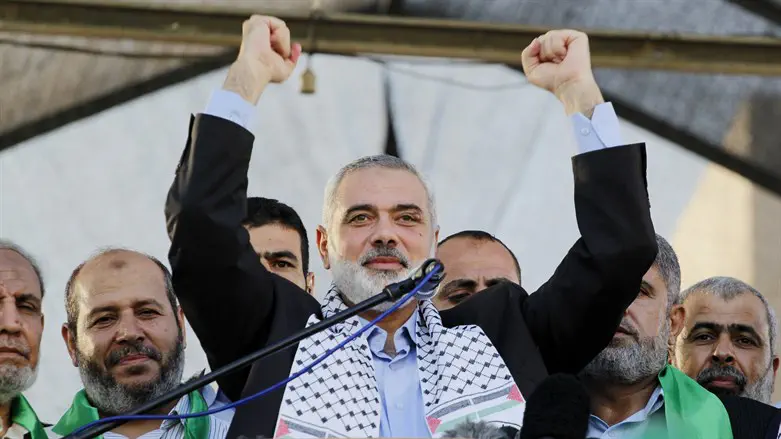
Erfan Fard is a counter-terrorism analyst and Middle East Studies researcher based in Washington, D.C.
Criminals always face the consequences of their actions. Ismail Haniyeh was a servant of Khamenei's Islamic terrorism network. He committed every crime he could to please Khamenei, but ultimately, he was eliminated near Khamenei himself, marking a significant success for Israel. This event demonstrates that Israel's enemies, no matter where they are, even in the heart of the world's terrorism hub, will still be hunted down.
The assassination of Ismail Haniyeh, the head of the Political Bureau of Hamas Terrorists, marks a significant development in the geopolitical landscape of the Middle East. Haniyeh, along with one of his guards, was reportedly killed at his Tehran residence, an incident confirmed by Hamas and the IRGC. This targeted killing, allegedly orchestrated by Israel, underscores the high-stakes nature of regional power struggles and the far-reaching influence of intelligence operations.
A Blow to Hamas and Its Allies
Ismail Haniyeh's death deals a substantial blow to Hamas, the Palestinian Terrorist Organization he led. Haniyeh was not only a symbolic figurehead but also a strategic leader who played a crucial role in Hamas' political and military activities. His leadership was pivotal in fostering ties with regional powers, particularly Iran's regime, which has long supported Hamas in its opposition to Israel.
The elimination of Haniyeh disrupts the organizational hierarchy and could lead to a power vacuum within Hamas, potentially causing internal strife and weakening its operational capabilities.
The Successful Role of Israel's Intelligence Apparatus
The reported involvement of Israel in this high-profile assassination highlights the capabilities and reach of its intelligence agencies, particularly the Mossad. Israel has a history of targeting key figures in hostile terrorist organizations to disrupt their operations and send a deterrent message.
The successful execution of such an operation within Tehran, a city heavily fortified by Iranian security forces, is a testament to the sophistication and daring of Israeli intelligence. This act not only underscores Israel’s commitment to neutralizing threats and Islamic Terrorists but also serves as a warning to other adversaries.
Implications for Iran-Hamas Relations
Haniyeh's presence in Tehran at the time of his death underscores the close relationship between Hamas and mullah's regime in Iran. His visit for the inauguration of Iran’s new president was symbolic of the alliance between the two entities, both of which view Israel as a common enemy.
The assassination could strain this relationship, forcing Iran to reassess its security protocols and the safety of its allies within its borders. Additionally, it raises questions about Iran’s ability to protect its allies and maintain its influence in the region.
Regional Repercussions
The elimination of Haniyeh is likely to have significant regional repercussions. It may embolden other countries to take more aggressive stances against terrorist organizations and their leaders. Furthermore, it could escalate tensions between Israel and Iran, with potential retaliatory actions from both sides. The assassination also has the potential to incite unrest within Palestinian Authority territories, as Hamas and its supporters respond to the loss of their leader.
The Path Forward
In the aftermath of Haniyeh's death, Hamas will need to attempt to quickly reorganize its leadership and strategize its next steps. The terrorist organization will likely attempt to rally its supporters and strengthen its resolve against perceived adversaries.
Meanwhile, Israel and its allies must remain vigilant and prepared for possible retaliatory actions. The international community should closely monitor the situation, recognizing the delicate balance of power and the potential for further destabilization.
Conclusion
The assassination of Ismail Haniyeh in Tehran is a landmark event with wide-reaching implications for the Middle East. It highlights the lethal efficiency of Israeli intelligence operations and exposes vulnerabilities within Iran's security apparatus. As Hamas grapples with this significant loss, the dynamics of regional alliances and enmities will undoubtedly shift. The international community must remain attentive to these developments, understanding that the path to stability in the region is fraught with complexities and challenges.
The influence of Mossad in Iran, as evidenced by this operation, cannot be understated. It signifies a bold assertion of Israel's commitment to its security and its willingness to take decisive action against threats, regardless of the geographical and political complexities involved.